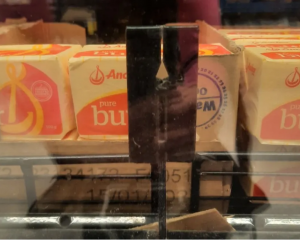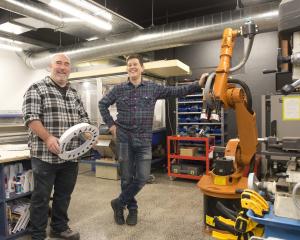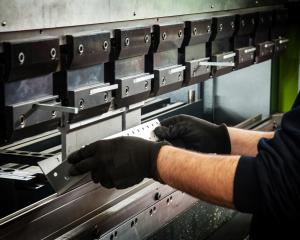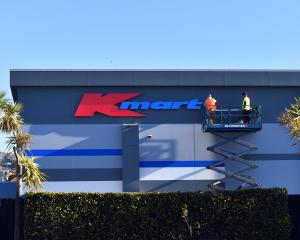Many new development details, other cancer diagnostics updates and strong hints of a large uptake from New Zealand district health boards featured at its 13th annual shareholders' meeting in Dunedin yesterday.
Pacific Edge's share price has risen from 20c to 58c during the past year, and shareholder attendance at the meeting was the best yet, there being standing room only for the 60 or so people at the University of Otago's Centre for Innovation.
The US remained ''the company's focus for 2014'', chief executive David Darling said, sales there having been allowed to start from July 1 after the granting of strict regulatory authority.
In the last financial year, Pacific Edge booked its largest annual loss, $6.94 million, since listing on the stock exchange in 2003, but as of yesterday retained about $10 million in the bank, which would cover operations for the coming year.
Pacific Edge has spent a total of $34.5 million on research and development since 2003, including $3.2 million towards setting up a laboratory in Pennsylvania and attracting a staff of more than 30.
The mainstay product is the Cxbladder detection tool, but shareholders heard yesterday about the separate Cxbladder triage and Cxbladder predict, which are close to the later stages of development, while Cxbladder health has begun development.
When asked about profit margins, Mr Darling said ''high gross margins'' were involved, with a Cxbladder test in New Zealand selling for $NZ320, in Australia for $A240 ($NZ275) and the US for $US550 ($NZ700).
Mr Darling expected up to two million people in the US would go to doctors with blood in their urine annually. About 50% of US work could come from public hospitals and 45% from private insurers, prompting him to estimate ''gross revenue'' from US sales of $100 million by 2018.
In New Zealand, full clinical tests for bladder cancer ranged in price from $1700-$2000, but only 5% of people tested actually had cancer, so Cxbladder ''could save district health boards considerable funds'', Mr Darling said.
After a question from the shareholders' association, Mr Darling said several other diagnostic developments for other cancers, mainly colorectal and gastric cancer and melanoma, had been ''parked up''.
While this was done for Pacific Edge to concentrate its efforts on the US, it maintained its intellectual property rights, and could potentially go into a joint venture, or licensing agreement, to further develop those diagnostic tools.
On a question posed about being bought by a large pharmaceutical company, Mr Darling reassured investors that such a buyout would have to be considered by the board in the light of what would be in the best interests of shareholders.
''They find juicy morsels like Pacific Edge, then scoop it up. That will come in time,'' Mr Darling predicted.
After the meeting, he said one unidentified pharmaceutical company had approached the board and, had it not been for the global financial crisis, might have gone on to consider a buyout offer, Mr Darling said.












